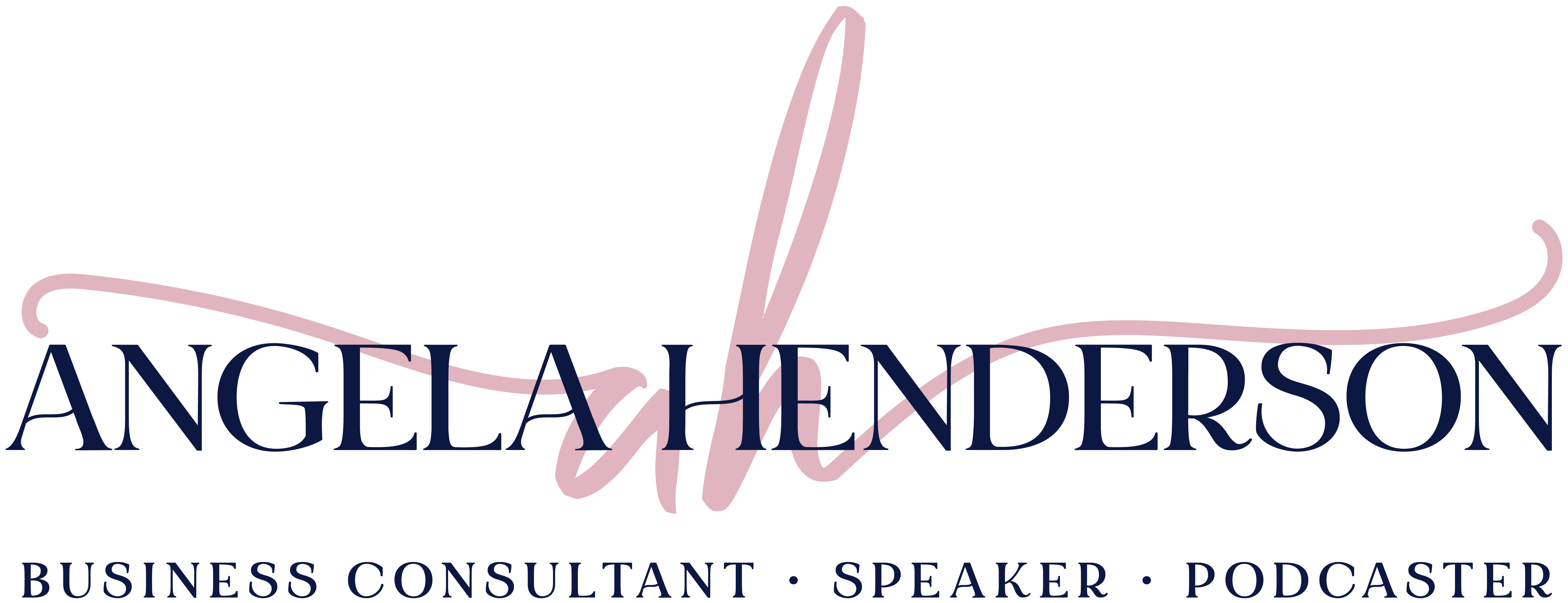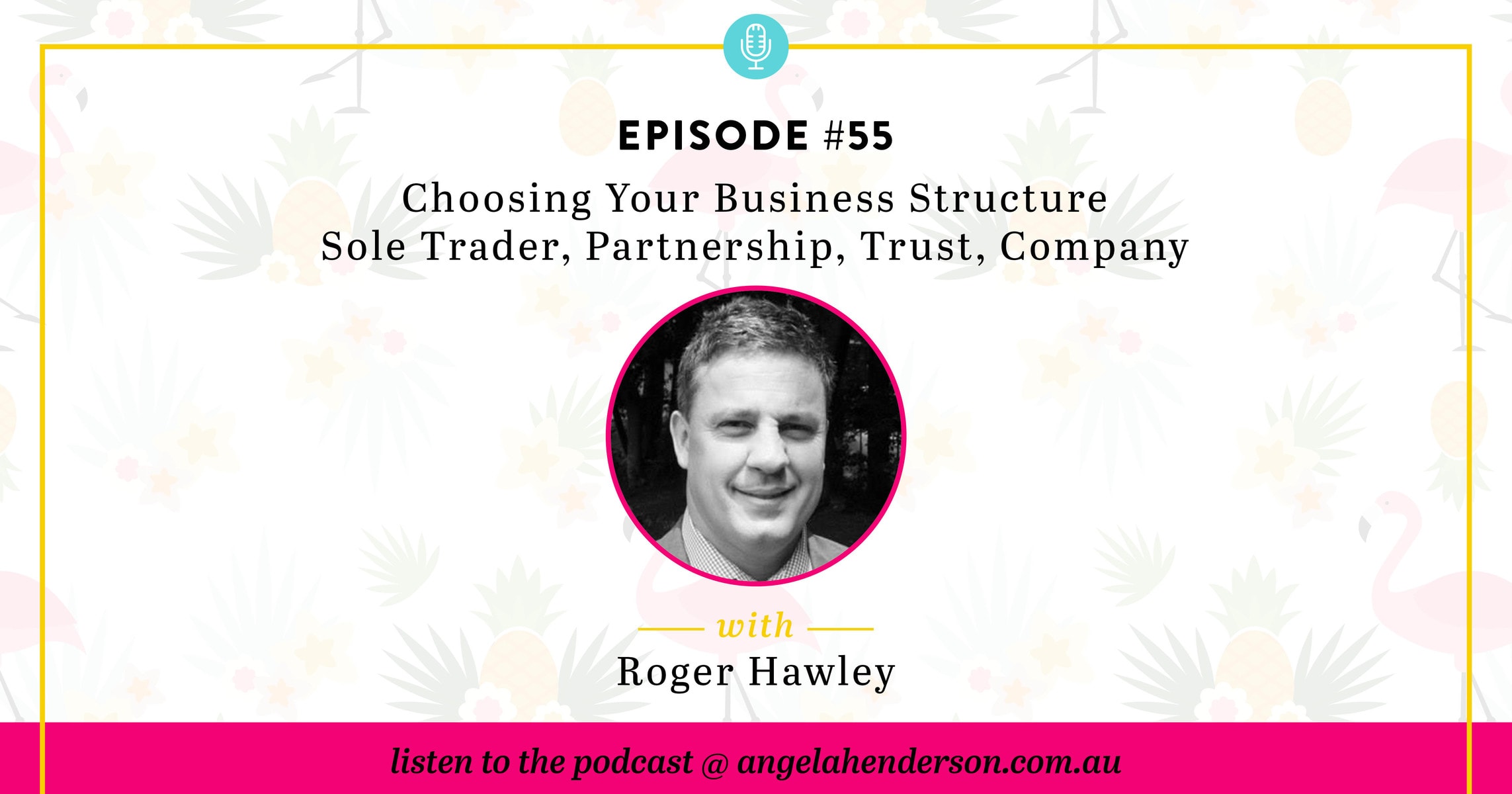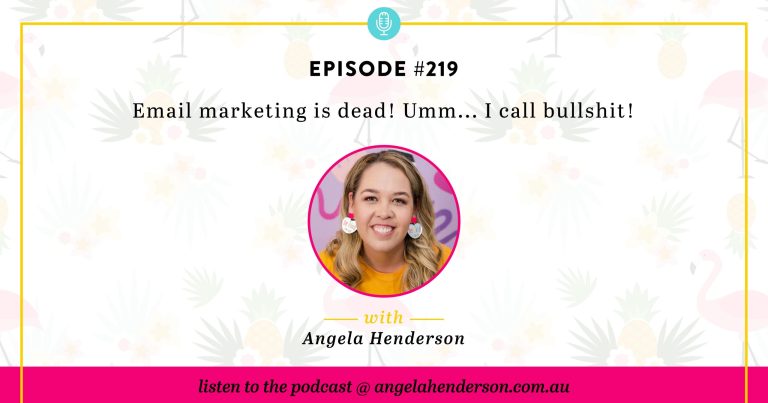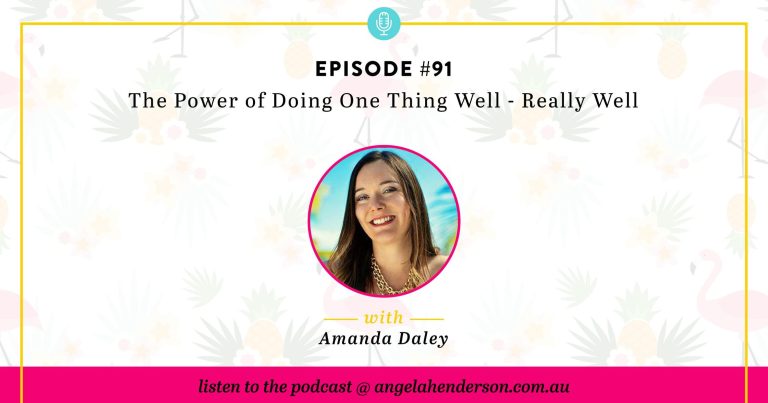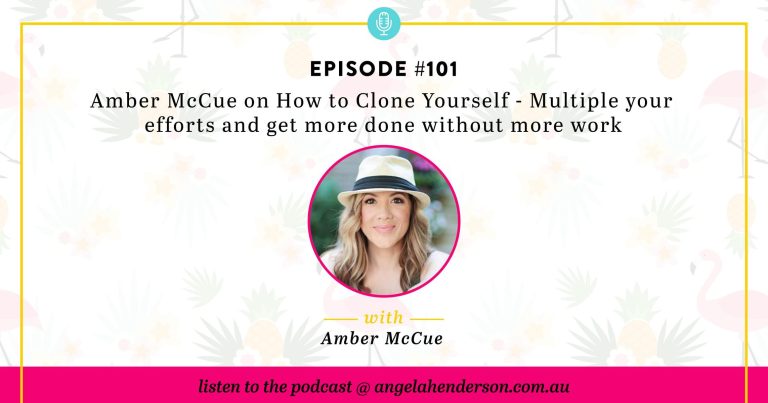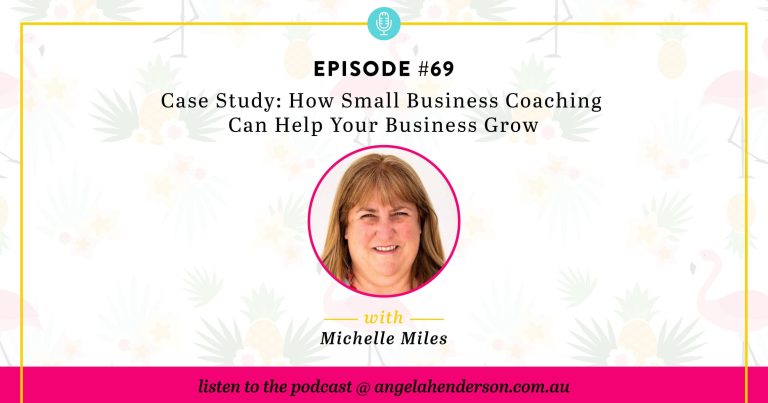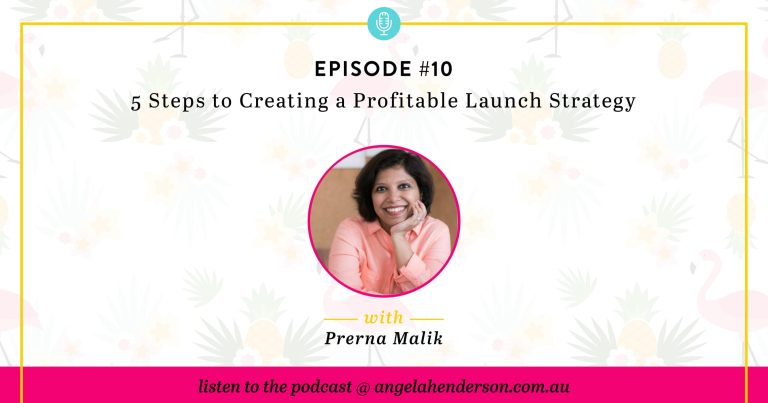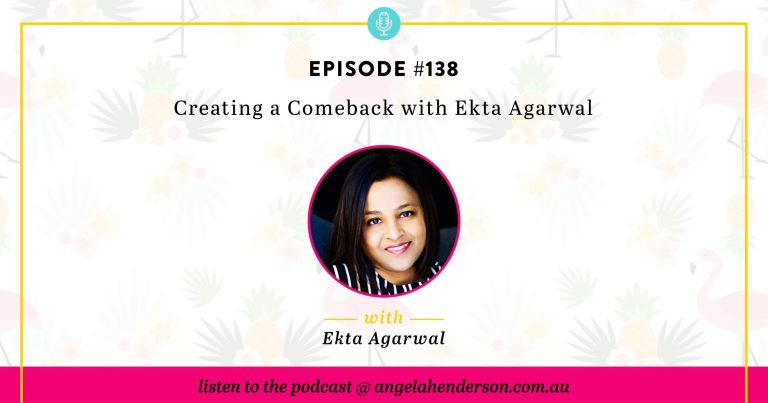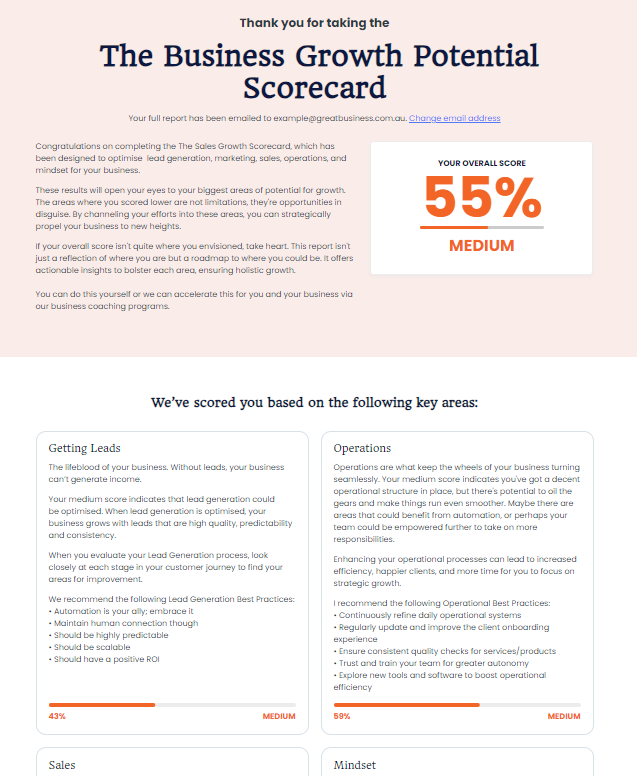Episode 55 of the Business & Life Conversations Podcast is a wealth of knowledge on business structures in Australia. I will be joined by Roger Hawley, of Hawley Accounting to help walk us through and understand what it means to become a sole trader, partnership, company and trust. He gives us a rundown of the advantages and disadvantages of each and points us to the right direction of which business structure to apply to our own business. This is a very informative episode you wouldn’t want to miss.
Important Links Mentioned in the Show:
Roger Hawley Mobile Number 0409008453
Roger Hawley Email Address: roger@hawley-accounting.com.au
Hawley Accounting Facebook Page
Australian Business Collaborative Facebook Group
Finding Balance in Business Women’s Retreat
Angela Henderson Active Business Facebook Group
Angela Henderson Facebook Business Page
Prefer to read Choosing Your Business Structure – Sole Trader, Partnership, Trust, Company? Here’s the transcript:
ANGELA:
You’re listening to the Business and Life Conversations Podcast with Angela Henderson, Episode 55.:
Hey there, you’re listening to the Business and Life Conversations Podcast. My name is Angela Henderson and on this show, we talk about improving your business, life or both. By having amazing and rich conversations with brilliant guests who will inspire you and who will give you tips and tricks to help you grow both in life and in business.
Well, hey there and welcome back to another amazing episode with the Business and Life Conversations Podcast. I’m your host, Angela, from Angela Henderson Consulting, where I’m a Business Consultant helping women in business develop the foundational framework they need to grow sustainable and profitable businesses through clarity, strategy and community.
Thank you so much for being here today. I hope you are ready for a very jam-packed, informative episode because we’re going to be covering a very, very important topic that so many business owners, including myself, have been so confused about over the years. That topic I’m talking about is business structure. I mean, let’s be honest people, are you a sole trader, partnership, trust, company? Do you even know what all those mean? Do you know when you should go from sole trader to company? Or should you start as a company and go back to sole trader? Or do you start a trust and go to partnership? Like dude; this shit is confusing. But don’t worry, because in this episode, I’ll be bringing on my accountant and friend, Roger, from Hawley Accounting to chat with us about all things business structure related and give you some clarity and great insight as to whether or not you should be a sole trader, partnership, trust, company; and what you can do to make these changes, if necessary.
But before we get into this episode, I just want to let you know that this episode is sponsored by my 4-Day, 3-Night Exclusive Women in Business Retreat, where we focus on women having the chance to connect, refocus, learn and grow. It’s being held from October 24th through to October 27th at the Gold Coast here in Queensland, Australia, and it’s an exclusive event with only 50 tickets being sold. From having 8 of Australia’s top female entrepreneurs speaking, to surrounding yourself with amazing people that will lift you up both at conference and after conference, to daily masterminds to get individual help on your businesses from both your peers and the speakers, to amazing food, and yes, as if you are a Mom and you would be coming; to being able to sleep in and eat hot meals uninterrupted; you’re not wanting to miss this amazing event. To learn more about this Retreat and to purchase your ticket, head to angelahenderson.com.au and simply click on Retreat.
All right let’s jump into this super informative podcast episode. Welcome to the show, Roger.
ROGER:
Thank you for having me.
ANGELA:
Gosh. No. Thank you so much for being here. I know, again, you also live in Brisbane so we’ve got beautiful weather today, which is always lovely. And listen, you and I, we’ve only just become friends just recently through a mutual friend of ours, Eric Anderson, who is kind of the guru of Export Grant.
ROGER:
That’s right.
ANGELA:
And it’s funny again, the importance of connections and I kind of hone with this and the listeners could be getting a little bit upset about me, but I do go on the importance of relationships and building these connections because it was through Eric that I met you. And in a time where there’s some big changes coming for my business, which we’ll talk about later on in the podcast, but if I wouldn’t have met Eric, who knows where I would have ended up. So the power of building those relationships and networks is super imperative.
ROGER:
Absolutely.
ANGELA:
Now, for today, if we kind of go back, today, to me, is a really important episode because there’s so much damn confusion about what business structure businesses should do and these questions that, I get hit up with questions and I don’t know the answers. And I think that’s also important that for those businesses that are out there, that you know, you really need to go to the expertise and the gurus when it comes to things like these; and that’s what your expertise is. But, to me, I just want to have an open discussion and talk about the advantages and disadvantages of different business structures and how that looks for business owners.
But before we jump into all things business structure, I would love to ask you one question. Because I always ask one question to each of my podcast guests, so we get to know a little bit more about the guest versus just their business. So my question to you is what is your all-time favourite restaurant in the world and why?
ROGER:
Okay. It would have to be; you’ve got me on the spot there; my all-time restaurant favourite and why. Well, my favourite food is Japanese food; so it’s going to be a Japanese Restaurant. I have to say, it’s called Hosokawa and it’s on Racecourse Road in Ascot here in Brisbane.
ANGELA:
Okay.
ROGER:
Yes, and the reason why I like it; it’s because it’s authentic Japanese. There’s a lot of Japanese restaurants which are rip-off restaurants [inaudible 4:53] what you have in Japan. But that restaurant is exactly what you would get if you went to a restaurant in Japan. So it’s very fresh and very good.
ANGELA:
Alright. So it’s located here in our hometown of Brisbane, which is awesome. And so, again, over in Ascot. So yes, well, thank you for sharing that. I always like the businesses out there that are listening to get to know the guests that I have on because I think it’s fun to do that.
Now tell, for those of you that are listening, you may not know a little bit about you, Roger. So can you tell us a little bit about you and the business that you’re currently running?
ROGER:
Okay. Yes, so my name is Roger Hawley and I’m running an accounting practice on the Northern Suburbs here in Brisbane, Queensland. I’ve been in business for about 10 years, and prior to that, I did about 10 years working for big accounting firms; KPMG and PwC, etc. here in Australia and also in Tokyo, Japan. And then, I got a bit disgruntled, I guess with the big corporate world, so I went out on my own. And now, I’ve been providing small business taxation and accounting advice to small businesses here in Brisbane for about 10 years. I’m actually having a 10-year celebration on the 26th of June.
ANGELA:
Very exciting. How fun is that? 10 years in business. That’s an amazing accomplishment.
ROGER:
Yes, so obviously, we’ll have invitations to that. I’m very passionate about small business. So I encourage everyone to quit their job, fire their boss and go out alone. People often say to me; they’re trying to tell you that there’s a lot of security in having a job. But I’ve made a career on advising people on letting people go, making people return them. So I don’t think it’s that much security in having a job because I’ve got a few hundred clients; I don’t like losing clients at all. But on that occasion when I do lose one, it doesn’t really affect my source of income. But if you’re holding down a job, that’s your only source of income. So if you happen to lose it, well then, that’s incredibly risky, in my mind. So how people can say that that’s job secure, when anyone’s source of income is beyond me.
Anyway, straight off this podcast, hopefully, people will start to feel my passion about small business and how I really want to assist everyone to follow their passion and do what they want to do in small business. Because it really is enlightening and it feels really good to actually do something and achieve something, and build something from scratch, which you know is your own and you can offer it out to the world. I guess that’s what I do. Yes, I’m an accountant, technically, but I like to say I’m more a passionate business owner.
ANGELA:
And I guess that’s why when Eric had recommended that I contact you because as we know, there’s been a few business changes with me. I was a sole trader for many years with my first business, Finlee and Me; and was still sole trading under the Angela Henderson Consulting stuff. And I was like, “This shit is starting to get messy. We’re going to have to do something about it.” I knew that I needed to go to a company, but I was like, “Really, what are the benefits of a company? Why do I need to do this? Do I just stay a sole trader?” And as we’ll talk about it, it’s been a huge learning curve and that’s what I hope if anyone gets anything out of this. Whether or not you’re starting a business and wondering what type of business structure you should do. Or even if you’ve been in business for almost 10 years, like myself, there are certain things that again, you really should pay attention to.
And this episode is going to talk about that because I probably would have done things very differently with my first business if I would have been educated around the different business structures, specifically here in Australia, which are the sole trader, partnership, trust, and the company. So unfortunately now, I’m kind of in a little bit of a messy; not a messy situation, we’re getting there. But just because you’ve got to tie up all the loose ends with the sole trader, you’ve got to open up new things with the company. That part of it does take time. So if anyone out there is listening and wondering what they should be doing, hopefully, between Roger and I will be able to give you some insight about what to do, what not to do, the advantages and the disadvantages, and to make your business and your life a little bit easier and simplistic along this journey.
So, for us, Roger, I guess the first question that I want my listeners to kind of know is, what are the; we’ve talked briefly about it, but I’d like to hear it from you is what are the four common types of business structures here in Australia?
ROGER:
Yes. Okay. That’s a really good question. And probably the most four common types of business structures for small business here in Australia; there are business structures which are applicable to much, much larger corporations, which aren’t relevant to us. But for small businesses, the most four common types is sole trader, which almost everybody starts out as. Then there’s a partnership, which is probably; that’s the least common of the four, and less and less people are forming partnerships these days for reasons I’ll explain in a moment. And the third one is a company; so you probably heard the expression Pty Ltd. And the last one is a trust. There’s quite a few types of trust, but the main ones that people run businesses through are discretionary trusts or collectively known as a family trust.
ANGELA:
Okay. And you’ve mentioned this a minute ago; most people will start out though as a sole trader. So can you give is the definition of a sole trader and then kind of hit us with some advantages and disadvantages of this particular business structure?
ROGER:
Absolutely. So a sole trader is an individual. So they; like for example, I’m Roger Hawley. I started as a sole trader. So my first ABN was as Roger Hawley. And any income expenses that I derive through that business as a sole trader, they were included in my own personal income tax return. Like, if you cut off and I have people come and they hold down a job, and then they have a side business as a sole trader. So all of their job income and their sole trader income gets screwed together into the same return. The advantages of that? Administratively, it’s really easy. It’s free to set up. You have your own ABN. And you’re literally a sole trader in about 5 minutes. It doesn’t take that long at all. So that’s the biggest advantage. Like, it’s easy to set up and it’s free. But that’s very bad. I think that’s where the disadvantages…
ANGELA:
Yes.
ROGER:
The disadvantages of being a sole trader, in my opinion, far outweigh the advantages, especially if you’re passionate and your ambition is to make something, which is quite big. There’s quite a few disadvantages. So I’ll just start with the first one and that is tax. As a sole trader, there’s no flexibility for the tax. Like, what is derived in the sole trader’s name has to be taxed in the name of the sole trader. You can’t income split easily. So that’s the first one; the first disadvantage of being a sole trader. The second one is there’s absolutely no asset protection whatsoever. So if you run a business through, as a sole trader, and one of your clients decided to sue you and they sue you successfully, then they can go after your personal assets as well. So there’s no protection whatsoever for your personal assets. And thirdly, and this one often gets overlooked, but it’s a big one for me; is perception.
ANGELA:
As in, what way?
ROGER:
How your customers will view you? Like, when I go into business with someone and before I sign on the dotted line, I always do a search on their ABN. And I go to abr.gov.au, put the ABN in, and if that returns me the results of a sole trader not registered for GST, what do you think I know about them straight away?
ANGELA:
Whether they’re potentially aren’t making as much money as maybe they lead you to believe?
ROGER:
Yes. Exactly. They’re small. I know straight away they’re earning less than $75,000 because they’re not registered for GST.
ANGELA:
Yes. And what about those sole traders, so for example, I mean, obviously that would come out. So I was registered for GST right from the beginning, like Day 1, with Finlee and Me. Because I was informed that if you register for GST earlier on; I guess the mindset shift, is that you will play a little bit bigger. But also like, you kind of just, you know no different. So you’re already paying GST from the beginning, and that’s just for me, that’s all I know. So not all sole traders though are registered for GST though.
ROGER:
That’s right. And see, I think you were very smart in investing, in registering for GST right from the start because of the mindset change and adaption that you mentioned. But there are some times when I do advise my clients to stay as a sole trader and not register for GST if in their opinion, they want to have a hobby/business. Like, it’s just a business, like they have no intention of making it big. In that case, then I would say, “Stay as a sole trader.” Because they don’t need the added expense of being a company or a trust, or the added administration of doing GST. And examples of that often, PTs at the gym.
ANGELA:
Okay.
ROGER:
Those guys, they very rarely earn more than $75,000. And if they register for GST, it just makes their service 10% more expensive for their clients.
ANGELA:
That’s fair enough. And so for those of you though that are out there as a sole trader, and I guess we can move into that kind of next structure around the company side because that’s kind of where I’ve just come from. Tell the listeners out there a little bit more about why would they potentially either move from sole trader to company to start with or automatically start as a company first?
ROGER:
Yes. Okay. So essentially, the advantages and disadvantages of a sole trader are in the reverse of a company. A company costs money to set up. Typically, it cost at least $1000 to your accountant. But on average, it’s about $1500 to set up a Pty Ltd. And then, there’s an ongoing fee that you’ve got to pay to ASIC, which is currently $263 dollars a year just to maintain your registration. So there’s more expense straight off the bat. Then a company access its own entity. So it has its own ABN, its own tax file number, and it has to lodge its own tax return. So automatically, once you have a company, you go from one tax return a year, which was your own, to now then, two tax returns a year, which is; you still got to do your own, but then, you also got to do the company. And it also needs to maintain financial statements, as well; the profit, the loss and the balance sheet.
So administratively, there’s more things to do in having a company. And if somebody has no intention of becoming large in their business, well then, they don’t need to take on that added administration. But I’m passionate about business and the people that I work with. I want them all to be as large as they possibly can be. So, therefore, a company is the best structure for most people. The advantages of a company is that you have the ability; well first, I’ll talk about the taxation advantages. You have the ability to retain earnings. So what I mean by that is a company might make some profit. But under the sole trader structure, all of that profit has to be taxed in the hands of the sole trader. But under the company structure, you can choose how much gets taxed in the individual’s hands, and how much gets taxed in the company’s hands, which gives you a little bit of flexibility comes tax time. Because the company’s tax rate is fixed at 27.5% for a small business, where the individual rates at 32.5% for the bracket more than $37,000. So if you can see there, there’s a tax difference.
ANGELA:
Massive difference, really.
ROGER:
Yes. So you really want to keep as much in the company for as long as you can. So there’s flexibility there. Then it’s easier when you employ people and etc. etc. like it’s just a lot cleaner to have it separate in the company. So you’ve got those tax advantages there.
Then secondly, it can serve as a barrier to help protect your assets when you’re running your business. Like it’s not fool proof, it doesn’t mean you can go out and act really nilly, there are still director responsibilities that need to be considered. But it acts as a barrier between your business and your personal assets. So when you trade through a company, you set up your engagement letters and your agreements with your clients and your suppliers with the company. So it’s not with you, personally, it’s with the company. So that’s a massive advantage there over a sole trader because it acts as a barrier to protect you from your personal assets.
ANGELA:
Yes.
ROGER:
And then the third one is perception; so the exact opposite of a sole trader. Like if I go ahead and do my ABR search on their ABN, and it comes back as a Pty Ltd that’s been established for 5 or 6 years, or however long the period may it be, I can feel a little bit more confident that I’m dealing with someone that is serious about business and they’re in for the long haul.
ANGELA:
Yes. So just naturally, their credibility and authority is a little bit more sound, a little bit more solid because of that.
ROGER:
Absolutely.
ANGELA:
Yes. And so, and you mentioned though, for those that are out there, such as myself, obviously, when I was, “Okay. Great. I need to roll to a company.” Now, I’ve seen businesses who try and set this up themselves because they’re trying to save a little bit of money. But seriously, people need to remember out there that accounting is not your zone of genius. And you don’t want to set up if you are going to go into a company and there’s a lot that you’ve got to consider. So it’s like, seriously, my advice to you, and I’m saying this for someone who’ve just been through it, if you’re already going to do a company, you’re going to have to start paying the company, anyways. Like, again, just pay for that expertise and have someone like Roger set everything up because it’s going to make your life a hell of a lot easier. You are guaranteed that the paperwork is going to be done correctly. So if you are considering it; and we’ll talk later about how you can work with Roger later on. But just important that if you’re going, “Oh, yes, people can do it.” Yes, anyone can pretty much do anything on their own. Like with my trademark, for example. I could have put in my applications for my trademark. Also, we will be bringing my friend, Lisa Win, who’s the lawyer who did mine for me on there. But it’s like, there’s different classes and there’s all these things. Just let the experts do what they do well and you just focus on running your business because it will naturally help you with your growth later on if you just have everything set up correctly.
ROGER:
Yes. That’s a really good point. Because it’s much easier for me and much more cost-effective for my clients if I set things up from scratch. The amount of times I’ve had something come to me that’s been set up incorrectly and then have to fix it, is actually more expensive and more time-consuming for the client than if I did it from scratch. So I think that’s really good advice, what you’re giving your listeners there.
ANGELA:
And not to mention the emotional headspace. Like, then you’ve got to carry and go, “Okay, we’re still going to fix this, we’re going to fix this.” I mean, that’s what I’m feeling right now with the whole transition, right? There’s some things that happened with my old account and that now we’ve got to switch. And I’m just like, “I just can’t wait ‘til that; my headspace is clearer and free to hold on to it.” Because it does, even though it’s not massive, it’s still taking up that energy, and that space, when it’s not necessary if I just would have done it right the first time. That’s why. We’re all aware of that.
ROGER:
Yes. That’s a really good point because what I promote to my clients is let the accountants and the lawyers and the people do the back end administrative work and free yourself up just to focus on selling your business and improving your own business, spending time on what you’re best at, within the business.
ANGELA:
Yes. 100%. So we’ve covered the sole trader. We’ve covered the company. Talk to us a little bit; what do you want to do? Do you want to talk to us first about the trust or the partnership side of things?
ROGER:
I’ll just briefly touch on partnership. There’s pretty, well, no advantages of a partnership anymore. Like, it’s just too risky.
ANGELA:
Okay.
ROGER:
So I really don’t know anyone that advises the partnership structure anymore. I’ve seen a couple of structures where you might have two partnership; a partnership with both partners are companies, and that happens. But a partnership of two individuals; it’s just too risky now. So I don’t advise anyone to do that. If you’re wanting to go into business with someone who’s not a family member, then you best just to jump into a company straight off the bat, because it’s too risky to start it off with two individuals in partnership.
ANGELA:
Alright. Yes. So there’s really not a lot of advantages; there’s more disadvantages in regards to the partnership. So really, the three main ones that you’re focusing on is sole trader, company, or, which we’re about to talk about, the trust.
ROGER:
The family trust, yes, that’s right. The disadvantages of a partnership so far outweigh the advantages that I don’t know any professionals that advice partnerships between clients.
ANGELA:
So then, what is it about the trust? What are the advantages and disadvantages of a business structure from the family trust perspective?
ROGER:
Okay. So the advantages of a trust is it’s much cheaper to set up than a company. Cost you around $300 to $400 just to set up a trust. And I can do that for people. Any lawyer can do that. It’s very cheap to set up. And you don’t have the ongoing ASIC fees that you’d have with the company. And you’re also outside of the director’s responsibilities, as well. You don’t you have to follow the corporation’s law. So, administratively, it’s a lot easier to run through a trust. Then secondly, you also have some of the advantages of tax by distributing the income to family members, so that can help minimize your tax. There is advantages there.
But the biggest disadvantage from a trust compared to a company is a trust is unable to retain earnings. So what that means is you can’t leave the money in the trust and intact. So you can. But it gets taxed to 4.5%, which is pointless. So all of the profit that you have derived in that financial year in the trust has to be distributed out. So when you’re starting out, and you might only have $100,000 of profit, and there’s Mom and Dad running the business; that is not a problem because you’ll just have $50,000 each. And in individual’s hands, that’s not too bad. But if you start making $400,000 in your trust and you have to distribute that to Mom and Dad, then that’s $200,000 each. And then, it becomes a problem because you’re getting taxed in the highest marginal tax brackets.
ANGELA:
Yes. You’re almost like losing half of it.
ROGER:
That’s right. Yes. But if you’re in a company structure, you could pay Mom and Dad $87,000 each and the balance gets taxed in the company at 27.5%, which is a much more tax-effective way of doing it. So that’s the biggest disadvantage between a company and a trust. But a trust has a lot of tax benefits that a company doesn’t have when you’re buying; has buying and holding passive assets. Like for example, property or shares. At the moment, if you hold an asset; property or shares, in your trust, for longer than 12 months, you actually get a 50% discount in tax when you sell it later down the track, which you don’t get in the company. So that’s a massive advantage for holding passive assets in a trust.
To summarize; I think there’s a good way to summarize when to go through a company and when to go through a trust. If you’re running an active business, similar to what you and I are doing Anj, then you definitely go through a company because both of us have the intention to make our businesses big as they can be. So the corporate structure is the way to go. However, if you’re passion is buying property, or buying and holding shares, then a trust would be the way to go because then you can take advantage of the 12-month holding CGT discount.
ANGELA:
Yes.
ROGER:
Yes. So to summarize, if you’re running your business, do it through a company. If you’re buying passive assets, then buy them through a trust.
ANGELA:
And as you said earlier, if you just want to kind of maintain a hobby, and don’t ever really want to build the empire, keep it as a sole trader. Is that right?
ROGER:
Keep it as a sole trader, or even a trust, in that circumstance. Trust or sole trader, because then you don’t have those ongoing administrative fees and you’re also not bound by corporation’s law and director’s responsibilities.
ANGELA:
Okay. Yes. That makes sense. So for those businesses out there that potentially are sitting in a sole trader world, like I have been, and they know, like I said, changing business structures is something again that I’ve just gone through. It’s a bit of a pain, but I know it’s worth it in the long run, right? Once we get through this first pass, I will feel a brief lift off my shoulder. But what’s your advice for those people out there that are kind of maybe in a similar situation with me; they’ve been on business for a couple of years; businesses like, they’re having exponential growth, they know that their liability is potentially on their own personal assets if they remain as a sole trader. What is your advice for those that are wanting to say, change as a sole trader to company or even potentially looking at a trust or whatever that might be for them, where would you suggest people start?
ROGER:
Okay. So firstly, I would ask them to answer that question, “Are they going to stay small? Or are they wanting to make this as big as they can?” As soon as they say yes to that question, well then, they need to move to the corporate structure or the trust structure as soon as possible. Provided the owners; provided the sole trader or the partnership becomes the shareholders in the company, there’s no tax consequences. There’s no CGT at the end of transfer into a company. There used to be, but they took that away. So you can move over tax-free.
Structurally, it’s actually really easy. You just need to update your invoices with a new ABN. When you set up the company, you apply for a tax file number, you have to register for GST. So you have to do all that stuff as though you’re starting business again. Then, where it becomes a bit of an administrative nightmare is if you’ve got a lot of direct debits as a sole trader. You have to change them over to your company bank account. So administratively, there’s a few things that need to be done. But once they’re all done and then it’s plain same, it’s exactly the same as how it would have been when you’re a sole trader. But you have the added advantages of trading as a company.
ANGELA:
Wow. Again, if I would have known this information 9 years ago, my life would have been an enormous; it would have been so much different. And that’s I guess the importance of; not only, we’re talking about this yesterday, because I’ll be entering in the profit first and doing a few things on that; that’s a whole another episode. But again, making yourself; having financial literacy around your business is super important. And though I think, we would aim, for all businesses, I guess my aim is to make sure women in business, specifically, because we already, and again, statistically speaking, so for the men out there who might be rolling your eyes, saying that I’m loving women more than men, no. But as a mentor for the Queensland Government, we know that women in business fail at a much higher rate than males do, alright? And I guess one of my things is about making sure that women in business, particularly, all businesses do have a fair understanding about the financial literacy and what that looks like. And I guess part of that financial literacy is making sure that you are looking at the business structure that you need in order to be the most successful, the most sustainable, the most profitable businesses that you want to have.
ROGER:
It’s interesting you should say that, though. I guess from my personal perspective, I have an equal mix of male and female clients.
ANGELA:
Yes.
ROGER:
And my female clients, I would say, are more successful than the males because they are more open to learning. They spend a lot of money and resources on learning. And I think, generally, they’re much better at marketing as well; at selling their product. I’ll give three good examples of female clients of mine that have been really successful.
This one was; she found me through my website and she said, “Okay, I train people to get their forklift license.” So I wasn’t quite sure what to do, and how to dress; I was expecting someone a little bit rough. And so, I sort of dressed down for the meeting. And then when I went out, I had to meet her at the very first time; she was dressed in all the latest brand, gear and was very prim and proper. And wow, I was actually quite embarrassed at our first meeting. So she was a woman that was able to work in an environment and build a business in an environment that is male-dominated. And yes, I’ve worked with her from almost the beginning right to the exit term when she; she was able to sell that business at a substantial profit and now doing the things that she likes to do.
Another business I’d like to talk about is, it’s called Spray-Free Farmacy; the second one I’m going to talk about. She’s another female in business and she had come up with the concept of; she loves organic food and she wants it to be accessible to everybody. As you know, it’s more expensive than conventional food.
ANGELA:
Yes. Absolutely.
ROGER:
Yes. She goes and buys it in bulk and then she packs it into boxes and distributes that all around Brisbane. And her business, I’ve been working with her since the beginning. We’ve been together about three years now. And she’s turning over about 1.3/1.5 million now in three years.
ANGELA:
That’s fantastic.
ROGER:
Yes. So she’s an amazing businesswoman. I actually had; her name is Kristen Ottaway, I had her come along. She spoke with my meet-up in January earlier this year and she was fantastic.
And then, the third woman in business that I deal a lot with is; she’s a hairdresser, actually. She works in; she’s on Caloundra. She’s also opened her second store in Milford. She’s from Canada.
ANGELA:
Lovely. Go Canada.
ROGER:
Her name is Rebecca Anderson. She’s absolutely fantastic. We’ve been working together since scratch. She’s had her ups and downs. But she sticks to a model of customer service. Like supplying superior customer service, which in Australia, can be lacking, from time to time.
ANGELA:
Yes. 100%
ROGER:
So she instils in her staff and makes sure that when everyone goes there to get their hair done, not only do they walk out with fantastic hair, but it’s also a fantastic experience at the same time. So she’s looking to continually opening stores, but at the moment she’s got two stores and now we’re working on opening the third store. She is an amazing operator. And I guess the common trend between all three, is their ability to listen and learn, which I don’t think males; I know I’m being general…
ANGELA:
And I think, if I clarify that, the statistics that we were talking about with the Queensland Government, for example, is more that start-up phase, right? So women are more likely to fail within that first year and first five years of business than post. And so, I guess if I look at myself and maybe, again you could say, those other three women that you’ve used as examples, is they’ve come a long way from that. Which again, there are a few of my friends who are entrepreneurs, Ronsley, from We Are Podcast and Amplify; he’s currently looking at people like minds just collectively to see what does it actually take to make a true entrepreneur, right? One who’s got like that action-taking mindset even though we all get wobbles; like what does that look like. So I’m really fascinated to see what his podcast will come up with. There is something male or female, doesn’t matter about that, but in it, that there’s something ingrained in us with being, that drive to being successful. I don’t know what it is, but it is; it’s fascinating to see.
ROGER:
Yes. It is. It is fascinating. I’ve actually got a lot more other women that are equally successful but I think probably the difference between my female clients and my male clients, is my female clients ask so many more questions.
ANGELA:
Yes.
ROGER:
They want to know everything.
ANGELA:
Yes.
ROGER:
Where my male clients tend to assume. Maybe it’s out of pride. Maybe they don’t want to admit they don’t know. I’m not sure what it is. But my female clients are very active in asking questions.
ANGELA:
Yes. And I would say, I mean, you’ve had 952 emails from me in a very short amount of time we’ve been working together. So I can confirm that I’m one of those statistics, so speaking.
ROGER:
Well, I think, bring it on. I love it. For me, working as an accountant, the hardest part for me is when I don’t hear from you.
ANGELA:
Yes. Like, “Hello. We’re going to need to communicate here.”
ROGER:
Tell me what’s going on. Like, if you don’t tell me anything, I can’t help you in your business.
ANGELA:
100%. And that’s what again, there’s different accountants for different people. But I guess, you, that’s what I like and that’s why I chose to work with you is that you’re super proactive in that space around making sure that you’re always looking at that next level of growth and where to from here. And speaking of, for those people who are listening to the podcast and would like to explore whether or not moving to sole trader, company, starting a business and what they need to look at, the trust, partnership; how can they find you if they are looking for an accountant that again, genuinely knows what they’re doing.
ROGER:
Okay. So I’m very contactable on my mobile phone, which is 0409008453. I also have a web address, which is www.hawley-accounting.com.au. And my email address is roger@hawley-accounting.com.au. And also on Facebook; if you just do a Google search for Hawley Accounting, so it’s H-A-W-L-E-Y, Facebook search for Hawley Accounting and you can find me that way, as well. And also, if you want to connect with me personally on Facebook, as well, just Roger Hawley. Just send me a friend request and I’ll accept.
ANGELA:
Fantastic. Well, listen, thank you so much for clarifying different business structures and the four primary ones for small businesses here in Australia.
ROGER:
You’re very welcome.
ANGELA:
And for the rest of you, please remember that my team and I will also be putting together the whole transcription for this episode at angelahenderson.com.au. And of course, I cover all sorts of related business and life topics inside my very active Facebook Community, The Australian Business Collaborative. So head on over and join us. For the rest of you, have a fabulous day no matter where you are in the world. And I look forward to having you join me next week for another amazing episode of Business and Life Conversations Podcast. Have an awesome day everyone. Bye.
ROGER:
Bye.
ANGELA:
Thanks for listening to the Business and Life Conversations Podcast with Angela Henderson, Business Structure. www.angelahenderson.com.au
